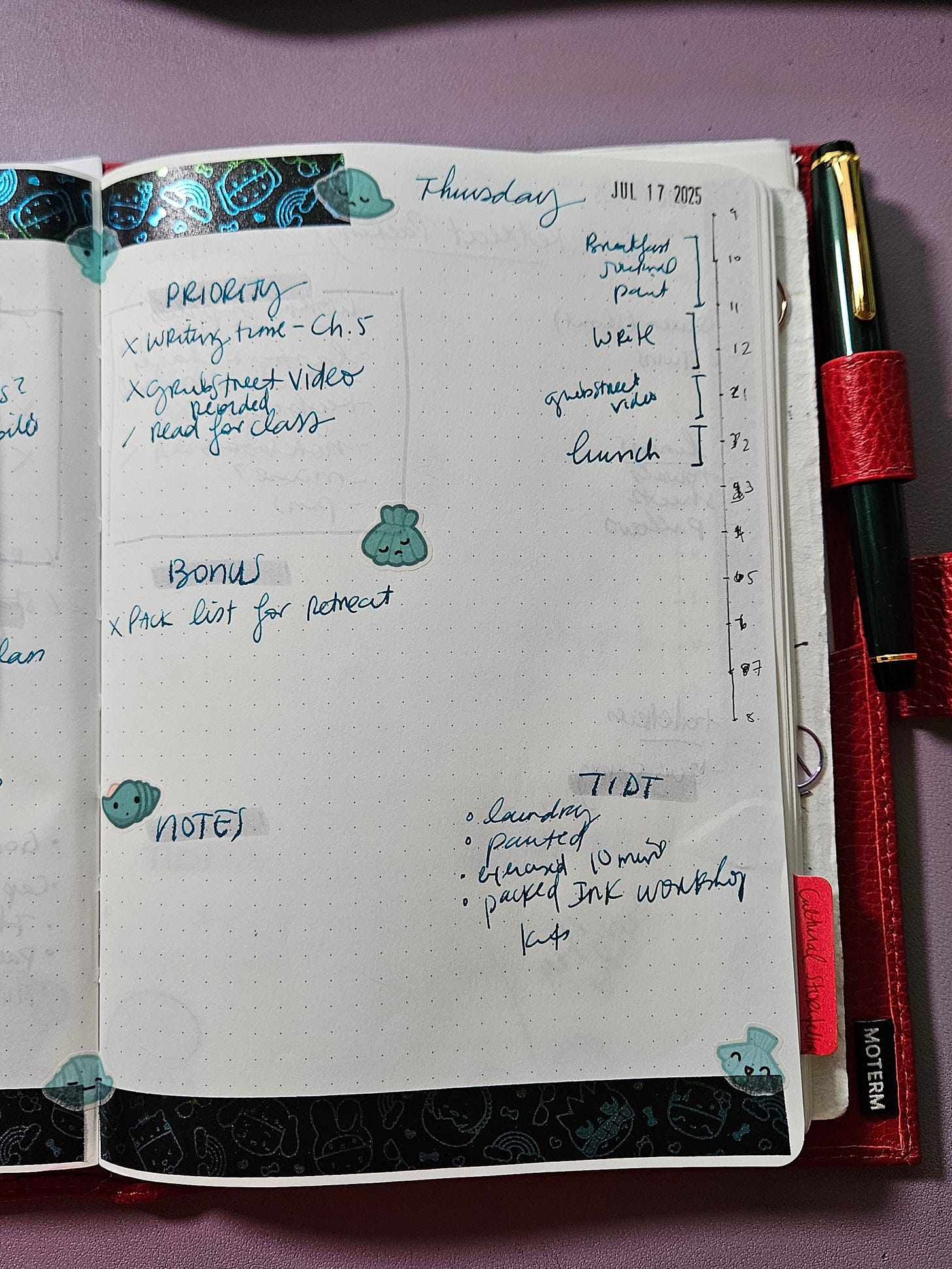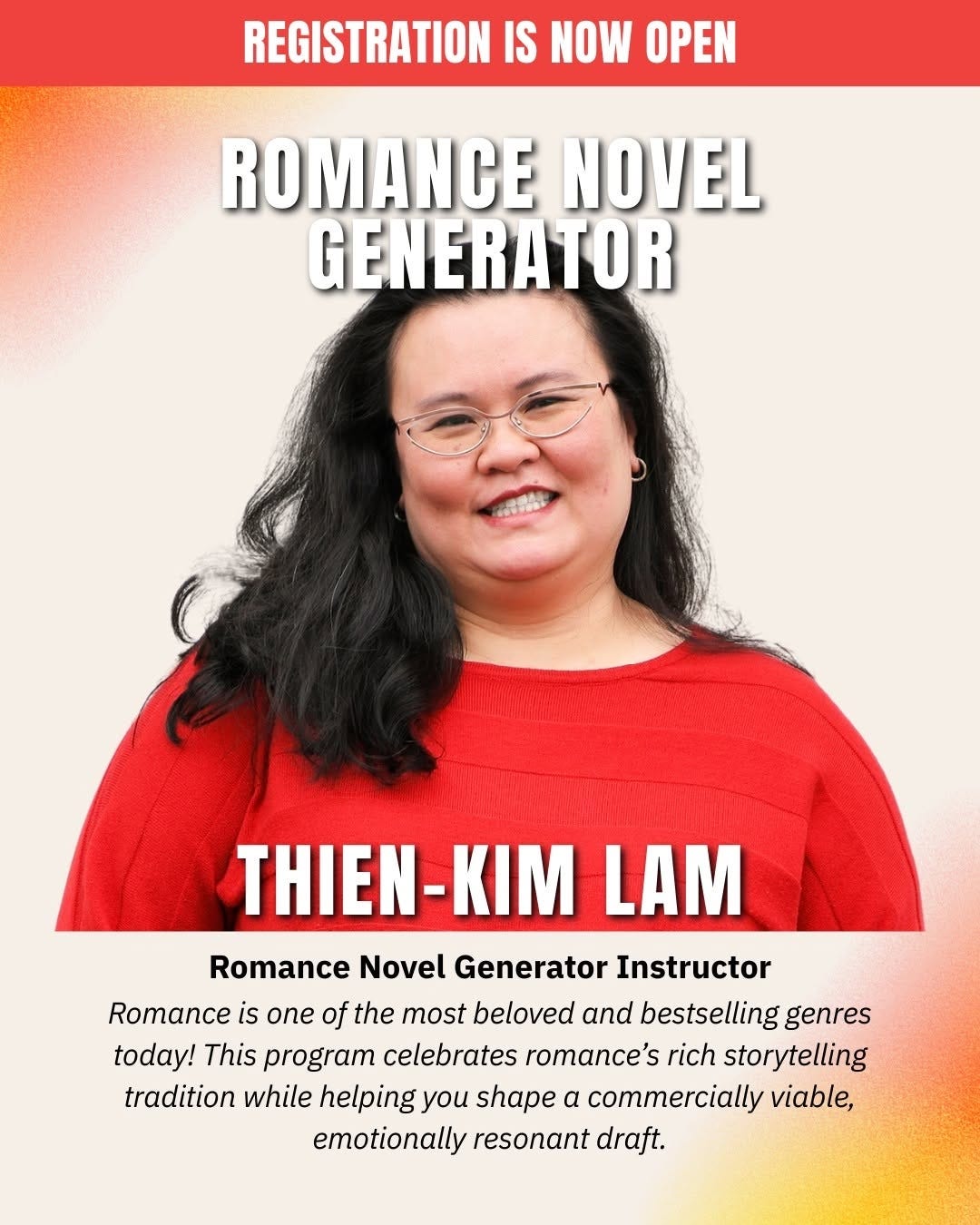Are you doing too much?
How I make time to write even when I'm tired. Spoiler: I don't write every day
“Do you think you’re trying to do too much?”
That’s a question I ask most often when working with my book coaching clients during our sessions. The answer is always, “Yes, but. . .”
I learned a long time ago that my daily to-do lists were more aspirational.

Can I feasibly get everything completed before dinner time? Highly improbable.
Did that stop me from adding more tasks to my list after I crossed off a few? Absolutely not.
Was I disappointed in myself because I couldn’t accomplish everything on my list? Every time.
Eventually I learned to I shorten my to-do lists, but mentally I wanted to add more to bullet journal. It didn’t matter that I was dealing with horrible insomnia and chronic pain. I expected my body to perform at the same level as it did when I was healthier.
Even if you’re not dealing with physical limitations on your energy, most of us assume we can accomplish more in one day that we physically can. Unfortunately, we live in a world that glamorizes and encourages hustle and overwork. If we don’t (or can’t) work for at least 8—let’s be real, it’s more like 10-12 hours—a day, then we’re lazy.
As the eldest child of immigrant parents, I’ve internalized that doing “nothing” is lazy both from my parents’ extremely admirable work ethics and from capitalism. Unlearning toxic productivity so I can take care of myself better is a constant journey.
I want to share how I manage my workload and hopefully you’ll find something that might work for you. We’re all wired differently, but if something feels right, give it a try for a week or so.
Note: My partner works a full-time job that provides our health insurance. While I do contribute income to our household, my partner’s income allows me to prioritize my health in a way I wouldn’t be able to otherwise.
Setting more aligned monthly goals
At the beginning of each month, I set work goals for myself. I limit myself to three. Yes, only three. I look at upcoming deadlines and the most important projects. I choose the ones I want to focus on the most.
For July, my goals are:
Write an expanded synopsis/outline for my fantasy novel
Record videos about my Romance Novel Generator program for Grubstreet Writers
Prep for the workshops I’m teaching at the DC Pen Show
That’s it.
It doesn’t mean I can’t work on items that aren’t on my July goals list. Sometimes I had to reprioritze them. For example, I barely worked on my fantasy novel this month because my agent asked me to beef up my contemporary romance proposal.
You’re allowed to change your goals.
I also have an “Intentions” section in my bullet journal where I have one or two non-work things to focus on. I wanted to read more books and make time to draw since my hand had healed enough from carpal tunnel surgery. I don’t keep track of these in any way except log books I’ve finished in my reading journal.
I use my monthly goals as a gauge on what I should focus on each week and each day so I’m not so easily derailed by things that pop up.
Keeping daily tasks manageable
Does your daily planner look like a never-ending list of tasks? That was me for a long time. My goal was to cram as much work into my day as I could. Usually that meant working when my kids napped and late into the night when my partner could take the lead if they woke up. I didn’t sleep very much then because I needed to work and freelance writing was the most flexible since I was the main caretaker for my kids.
How times have changed! I need way more sleep than I used to.
Instead of making a long list, I’ve changed my daily planning so that it adapts to my daily energy level. I use a bullet journal because analog works best for me, but you can try this in whatever method you use for planning.
Every morning I sit down and write down the top 3-4 things I need accomplish that day. It goes into a box I’ve marked Priority.
Under that is a Bonus section where I list things that would be nice to accomplish but not as important as the ones in the Priority box.
I also have section for Notes and TIDT (Things I Did Today) which I learned from
. I’ll note things that I did which were not on the Priority or Bonus list. This way if I suddenly feel drained or felt as if the day got away from me, I can see that I’ve actually things.I keep go back and forth about adding a timeline to my daily bullet journal page. It’s a way for me to track my time but I don’t always remember to fill it out. What I like about my planning method is that I can change my layout whenever one stops working for me.
How does this work with writing?
Just like my coaching clients, I don’t always do a good job of prioritizing my writing or making a realistic task list. Some days I don’t touch my manuscript. Other days, I forget to eat lunch because I’m in the zone.
What’s important is to show up for my writing.
I tell my clients to pick a date and time to write. Don’t listen to Stephen King. You don’t have to write every day. Maybe it’s Friday mornings when your kids are still asleep. Or during your lunch break. Or even late at night when your home is quiet.
What’s important is setting that time in your planner or calendar and showing up for yourself sticking to it.
I’m always tired. Unfortunately that’s how life has been for the past year or so. What I know is that weekday mornings are best for my creative time. It’s when I have the most energy. For the past couple of weeks, I’ve spent my morning journaling and writing my novel. Not every day produces a lot of words, but I’ve put in my time. I’m keeping my story alive.
If I have energy, I do admin work after lunch. I’m answering emails, posting on social media, etc. Sometimes, I pull out my sketchbook and draw. Evenings are family time where we watch shows together or I’ll parallel play with my partner: he’ll play games on his phone and I’ll read on my Kindle.
Lately I’ve taken afternoon naps because my body needs it. My work won’t be any good if I try to push through my fatigue. And my body will hurt more at night when I’m trying to fall asleep.
I have good writing days and not so great writing days. Sometimes I don’t even open my document.
But every morning is a chance to try again. Every morning is another opportunity to give myself grace and remember that I’m only human.
I’m not a machine. I need to do fun things and to rest in order to refill my well.
Do you want support as you write a romance novel?
Check out my Romance Novel Generator at Grubstreet Writers. It’s an 8-month virtual intensive where you’ll join me and a small cohort of writers to work on your romance novel.
Learn more here. Yes, scholarships are available. There’s also an info zoom session on August 7 if you want to hear about the program and/or ask questions.
If you prefer to work one-on-one, I have availability for book coaching starting in September. Details here.







